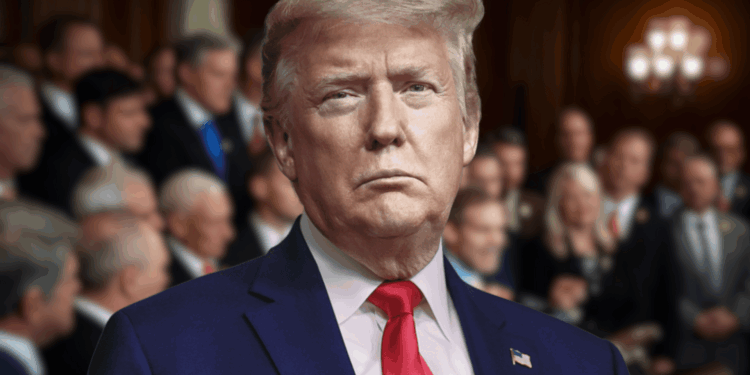- House Republicans are already clashing over smaller provisions as they begin shaping Trump’s sweeping domestic policy bill.
- Controversial proposals like a $20 vehicle fee and a “gold card” visa for the wealthy have been scrapped due to internal pushback.
- Bigger fights, including $880 billion in Medicaid cuts, are still looming as GOP leaders race toward a Memorial Day deadline.
House Republicans are diving into the messy business of turning President Trump’s ambitious domestic agenda into actual legislation—and they’re already running into friction. The hard stuff? Yeah, they haven’t even gotten there yet.
After taking a two-week break, lawmakers are back and House committees have started picking apart and piecing together sections of what Trump dubbed his “one big beautiful bill.” The plan covers extending the 2017 tax cuts, pumping more money into immigration enforcement and defense, and lifting the debt ceiling. To pay for all that? Deep cuts. But even those so-called “easy” cuts are already kicking up dust.
Early Clashes Signal Trouble Ahead
Take Wednesday for example: Rep. Sam Graves from Missouri, who chairs the Transportation and Infrastructure Committee, had to yank a proposal last minute that would’ve added a $20 annual fee on almost every passenger car. Why? Conservatives didn’t like it. They called it a “car tax” and that was enough to blow it up.
Same kind of thing happened over in Judiciary. Rep. Darrell Issa floated a plan to make Trump’s “gold card” visa for wealthy foreigners a real thing. Conservatives weren’t into it—they don’t want to expand visas—and it got shot down.
Then there’s the Education and Workforce Committee. On Tuesday, Chairman Tim Walberg pushed through a student loan reform package aimed at slashing $351 billion in federal spending. One part, in particular, caught flak: a “risk-sharing” provision that would make schools pay up when students default. Democrats weren’t thrilled.
“All the committees are making tough decisions, and we’re gonna build this bill,” said Rep. August Pfluger, a Texas Republican and head of the conservative Republican Study Committee.
The Clock’s Ticking — and the Math Is Tight
Now that the overall budget framework has passed, Republicans are in detail mode—figuring out the nuts and bolts. Speaker Mike Johnson thinks the House can push the final bill to the Senate by Memorial Day. It’s a bold timeline, but not totally out of reach.
That said, it’s not exactly smooth sailing. The GOP only has a slim majority—220 to 213—so every vote matters. Every disagreement, no matter how small, becomes a potential roadblock.
“Just about every step of the way has been difficult with a small majority,” Majority Leader Steve Scalise told reporters. He said he’s also been chatting with senators to make sure both chambers are on the same page before crunch time.

Medicaid and ‘Car Taxes’—What’s Next?
Arguably the biggest landmine still ahead is Medicaid. Some Republicans want cuts, others are flat-out against it. And with $880 billion in cuts assigned to the Energy and Commerce Committee, they’ve got some serious number crunching to do. A markup’s set for May 7, but the package isn’t done yet.
Even the small stuff can derail the whole thing. That $20 vehicle fee from earlier? It was meant to help the Transportation Committee meet its savings target under reconciliation rules. But after backlash, Graves pulled it and had to look elsewhere.
Now, they’re planning to hike the annual electric vehicle fee to $250 (up from the original $200) and trim funding for air traffic control upgrades—from $15 billion to $12.5 billion.
In other words, this thing’s gonna be a grind. And with bigger battles still ahead—like Medicaid cuts—the road’s only getting bumpier from here.












